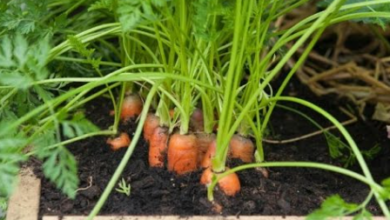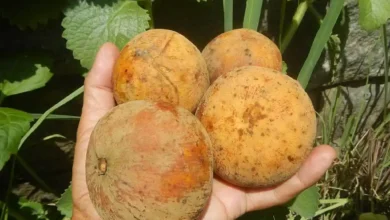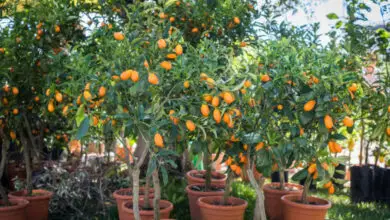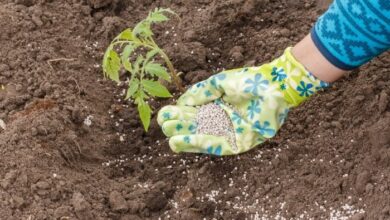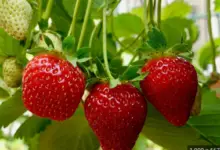Is Chicken Manure Good For Fruit Trees Or Not?
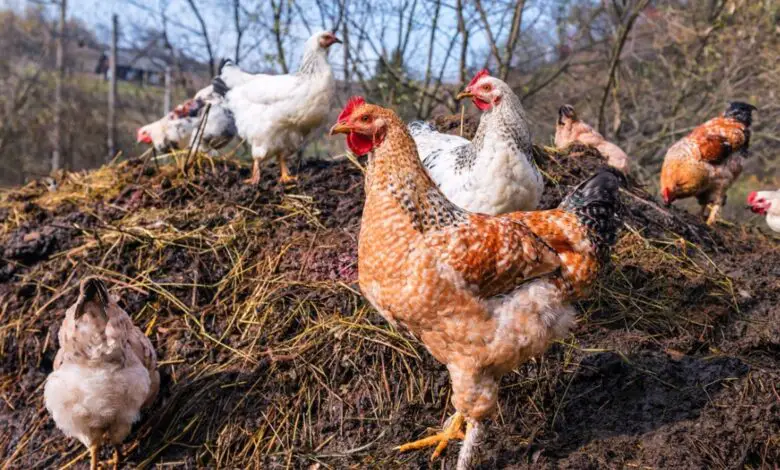
When it comes to nurturing fruit trees, finding the right fertilizer can make all the difference in achieving a bountiful harvest. While synthetic fertilizers are commonly used, many gardeners are turning to natural alternatives.
One such option is chicken manure, a nutrient-rich waste product that can be an excellent choice for fertilizing fruit trees. In this article, we will explore the benefits and considerations of using chicken manure as a natural fertilizer for fruit trees.
Table of Contents
- Is Chicken Manure Good For Fruit Trees?
- Understanding Chicken Manure
- Composition and Nutrient Content
- Benefits of Chicken Manure as Fertilizer
- Applying Chicken Manure to Fruit Trees
- 1. Preparing the Soil
- 2. Calculating the Right Amount
- 3. Applying Chicken Manure Safely
- 4. Time of Application
- Chicken Manure Tea for Fruit Trees
- Making Chicken Manure Tea
- Benefits of Chicken Manure Tea
- Precautions and Potential Issues
- Handling Chicken Manure
- Potential Odor Concerns
- Risk of Burning Plants
- Alternatives to Chicken Manure
- Compost
- Other Organic Fertilizers
- Conclusion
- FAQs
- Can I use fresh chicken manure directly on fruit trees?
- How often should I apply chicken manure to my fruit trees?
- Can I use chicken manure from backyard chickens?
- Are there any risks associated with using chicken manure as fertilizer?
- Can I use chicken manure on all types of fruit trees?
Is Chicken Manure Good For Fruit Trees?
Yes, chicken manure is good for fruit trees. It is a nutrient-rich organic fertilizer that provides essential nutrients like nitrogen, phosphorus, and potassium. It improves soil fertility, promotes healthy growth, and enhances fruit production when applied correctly.
Understanding Chicken Manure
Composition and Nutrient Content
Chicken manure is a valuable organic fertilizer due to its composition and nutrient content. It contains a rich blend of nitrogen, phosphorus, potassium, and other essential minerals that promote healthy plant growth.
The high nitrogen content in chicken manure helps stimulate leaf and stem development, while phosphorus supports root growth and fruit production. Potassium, on the other hand, aids in overall plant health and disease resistance.
Benefits of Chicken Manure as Fertilizer
Apart from its nutrient content, chicken manure offers various benefits as a fertilizer for fruit trees.
Firstly, it enhances soil structure and fertility by improving moisture retention and drainage. The organic matter present in chicken manure increases soil’s ability to hold water, preventing it from becoming waterlogged or overly dry.
Additionally, chicken manure promotes the growth of beneficial microorganisms in the soil, enhancing its overall health and nutrient-cycling capabilities.
Applying Chicken Manure to Fruit Trees
1. Preparing the Soil
Before applying chicken manure, it’s important to prepare the soil adequately.
Clear any weeds or debris from the base of the fruit tree and loosen the topsoil to allow for proper root penetration. This ensures that the nutrients from the chicken manure can be easily absorbed by the tree’s roots.
2. Calculating the Right Amount
Determining the appropriate amount of chicken manure to apply depends on factors such as the tree’s age, size, and specific nutrient requirements.
It’s advisable to perform a soil test to identify any existing nutrient deficiencies and adjust the application accordingly.
As a general guideline, for mature fruit trees, applying 1 to 2 pounds of chicken manure per square foot of soil is sufficient.
3. Applying Chicken Manure Safely
To avoid burning the tree’s roots or causing nutrient imbalances, it’s crucial to apply chicken manure safely.
It’s best to use composted or aged chicken manure, as fresh manure may be too strong and potentially harmful.
Spread the chicken manure evenly around the base of the tree, keeping it at least 6 inches away from the trunk to prevent rot and disease.
4. Time of Application
The timing of chicken manure application is crucial for optimal results. It’s recommended to apply chicken manure in the early spring before the trees begin to blossom. This allows the nutrients to be readily available as the tree enters its active growth phase.
Chicken Manure Tea for Fruit Trees
Making Chicken Manure Tea
In addition to direct application, you can also make chicken manure tea, which is a liquid fertilizer that can be easily absorbed by fruit trees.
To make chicken manure tea, place a small amount of composted chicken manure in a permeable bag and soak it in a bucket of water for a few days. The resulting tea can be diluted and applied to the soil around the tree.
Benefits of Chicken Manure Tea
Chicken manure tea provides a quick nutrient boost to fruit trees and helps improve soil fertility.
The liquid form allows for easy absorption by the tree’s roots, ensuring that the nutrients are readily available for uptake. It can be particularly beneficial during periods of rapid growth or when the tree shows signs of nutrient deficiencies.
Precautions and Potential Issues
Handling Chicken Manure
When handling chicken manure, it’s essential to take the necessary precautions. Always wear gloves and avoid direct contact with the skin.
Wash your hands thoroughly after application. Additionally, it’s advisable to wear a mask or work in a well-ventilated area, as dried chicken manure may release dust particles that can be harmful when inhaled.
Potential Odor Concerns
One potential drawback of using chicken manure is the odor it may emit. Fresh chicken manure tends to have a strong smell, which can be unpleasant.
However, this odor usually dissipates over time, especially when the manure is composted or properly incorporated into the soil.
Risk of Burning Plants
Applying excessive amounts of chicken manure can lead to the burning of plants.
It’s important to follow recommended application rates and avoid applying fresh manure directly to the tree’s roots or foliage. Composted or aged chicken manure is safer to use, as it has milder nutrient levels.
Alternatives to Chicken Manure
Compost
Compost is an excellent alternative to chicken manure, providing similar benefits and nutrients.
It consists of decomposed organic matter, such as kitchen scraps, yard waste, and plant residues. Compost enriches the soil, enhances its structure, and promotes the growth of beneficial microorganisms.
Other Organic Fertilizers
Apart from chicken manure and compost, there are various other organic fertilizers available for fruit trees.
These include fish emulsion, seaweed extracts, bone meal, and blood meal. Each of these fertilizers has its own nutrient profile and benefits, allowing gardeners to choose based on their specific requirements and preferences.
Conclusion
Chicken manure can be an excellent natural fertilizer for fruit trees, thanks to its nutrient content and beneficial properties.
When used appropriately, chicken manure can promote healthy growth, improve soil fertility, and enhance the overall productivity of fruit trees. However, it’s important to handle chicken manure safely, apply it in the right quantities, and consider alternative organic fertilizers based on individual needs.
With proper care and attention, fertilizing fruit trees naturally can yield satisfying results.
FAQs
Can I use fresh chicken manure directly on fruit trees?
Fresh chicken manure is not recommended for direct application to fruit trees. It is best to use composted or aged chicken manure to avoid potential harm to the tree’s roots.
How often should I apply chicken manure to my fruit trees?
The frequency of chicken manure application depends on the specific needs of the tree and the nutrient requirements. As a general guideline, applying chicken manure once or twice a year, preferably in early spring, is sufficient.
Can I use chicken manure from backyard chickens?
Yes, chicken manure from backyard chickens can be used as long as it has been properly composted or aged. Avoid using fresh manure to prevent potential health risks and nutrient imbalances.
Are there any risks associated with using chicken manure as fertilizer?
While chicken manure is an excellent natural fertilizer, there are some risks to consider. Applying excessive amounts can burn plants, and fresh manure may emit strong odors. Handling chicken manure requires proper hygiene practices to avoid contamination.
Can I use chicken manure on all types of fruit trees?
Chicken manure can be used on most fruit trees, but it’s essential to consider the specific needs and preferences of each tree. Some trees may require specific nutrient ratios or may be more sensitive to certain fertilizers.

